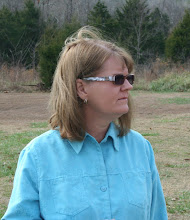This book is part of the reading material for the Worldview Class that Joe and I are teaching to Zachary and Ryan and a small group of their friends. I've recently seen it on a couple of high school level Great Books lists, and decided to give it another read from cover to cover.

Susan Schaeffer Macauley is the daughter of the famous evangelical Francis Schaeffer and his wife Edith. She spent a good portion of her childhood at L'Abri, her family's home in Switzerland which they used as a ministry. This book recounts conversations among L'Abri students during the years as they discussed the big questions of life.
The main reason Joe and I want our children to go through the Worldview materials while they are still in our home is because we want our children to *own* their faith; we don't want them to be *Christians* because Joe and I tell them that is what they should do. They need to think about the big picture / big questions of life and decide for themselves what is truth and what isn't. We want them to compare Christianity to other religions, and note how many times the viewpoints espoused by other religions don't match up with reality. And they need to be able to articulate the reasons for their faith. In 1 Peter 3:15, we're given instructions to "always be prepared to give an answer to everyone who asks you to give the reason for the hope that you have." Thinking through the big questions *does* prepare you to give an answer for your hope in Christ Jesus. This book definitely gets the ball rolling on the discussion of those big questions.
Early on, the author has this to say about truth:
"The basis of this book is the idea that you can find the key to truth. But before you read on, you must decide if there's really something to look for. Do you think that there might be a key to reality? That some things are true and others false, some right and others wrong? I'm not rushing you into an answer; some people would answer yes to the above question, and others no. What do you think?" ~ Susan Schaeffer MacauleySo right off the bat, the reader is deciding whether or not there *is* such a thing as truth, how you can know, and if truth matches up with reality.
Other questions posed in the book include:
"Why shouldn't my highest goal in life be happiness for myself?"
"Look inside yourself. Do you feel some direction about right and wrong in your own mind? If so, where do you think it came from?"
"Do you think that a good God could be like a kindly Santa, and pat people on the head? Or does it make sense to you that there could be a heaven and a hell?"
"Do you have value?"
"Can you sense what your purpose in life should be?"
"Who am I? Where am I going? How will I get there? How do I know?"
This book is written at the middle-school level, and is definitely for middle school ages and up; topics discussed include sexuality, abortion, and suicide. I highly recommend it for those who want to guide their children to think about the big picture of their existence.

This is by far... one of my all time favorite books! I have had my copy for years just waiting for kids to be old enough to read it. *Ü*
ReplyDeleteI need to go back nd read what promted you to review all these books... Good for you!!
Lisa